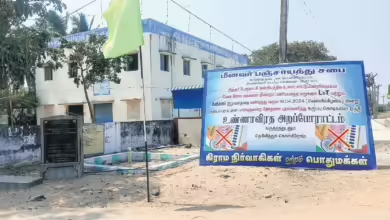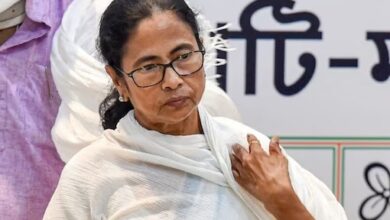Bombay High Court settles the Syedna succession dispute and maintains Syedna Mufaddal Saifuddin’s 53rd Dai
Mumbai: Ten years later, the Bombay High Court quieted the Syedna succession issue on Tuesday. Syedna Khuzaima Qutbuddin, who has since passed away, launched a lawsuit in 2014 seeking to be recognized as the 53rd Dai based on a private Nass of 1965. Judge Gautam Patel rejected the case. The spiritual leader, 52nd Da’i Al-Mutlaq, his half-brother, bestowed to him the nass he claimed.

The High Court ruled that the nass given to his son, Syedna Mufaddal Burhanuddin Saifuddin, by the 52nd Dai Mohammed Burhanuddin is legitimate.
The first question of whether the lawsuit was maintainable was one of five concerns that the HC had listed. It concluded that the lawsuit may be pursued. However, the question of whether Syedna Qutbuddin could demonstrate the legitimacy of the nass bestowed upon him in a private correspondence on December 10, 1965, was resolved.
For the 1.5 million Bohra community members worldwide, a nass is the process or bequest of a predecessor to his successor, making him the next Dai.
Judge Patel said, “I only addressed the question of proof, not faith,” as he delivered the much anticipated verdict in the Succession legal dispute. The lawsuit hearing was finished in April of last year, and the verdict was pending.
“I have kept it as neutral as possible,” Justice Patel said. “Please convey to the defendant that this should now be closed,” he asked senior lawyer Iqbal Chagla, who headed the Syedna Mufaddal Saifuddin team of attorneys and was present in court after the announcement.
I don’t want any upheavals, but I think we are overseeing a split here that should be managed. That was what worried me.
The HC received guarantees from the array of attorneys present in court, including senior lawyer Janak Dwarkadas and Fredun De’vitre, who represent the defendant.
Anand Desai and Samit Shukla, who represented the plaintiff, Syedna Taher Fakhruddin Qutbuddin, who had taken over when his father passed away in 2016 as his successor, said they will review the ruling before making any further decisions.
Judge Patel said, “This is the second case of its kind,” in which the 51st Dai was the defendant.
The initial complaint was submitted by the late Syedna Khuzaima Qutbuddin, who claimed to be the 53rd Dai-al-Mutlaq and asked for a proclamation of that status. He said that the 52nd Dai had discreetly bestowed on him “Nass,” a legacy from a forebear to his successor. Syedna Qutbuddin had argued that the Nass was in direct contact on December 10, 1965, and the Dai had also made it known publicly in his sermon.
The crux of the argument was that the 53rd Dai could not have been Syedna Mufaddal Saifuddin after the death of the 52nd Syedna Mohammed Burhanuddin in 2014, at the age of nearly 100.
Syedna Mufaddal Saifuddin said that he was named spiritual leader after receiving the Nass award in 1969, again in 2011, and once more in between. This was supported by the HC’s conclusions.
Five major concerns were presented by the HC: Could the suit be maintained? What is a genuine Nass? Could both parties establish that their Nass was the valid one? Can a Nass be altered or canceled after it has been conferred?
Desai, the attorney for Syedna Qutbuddin, had argued that the succession of Imams and Dais is predetermined and that the Imam at the moment is aware of the identities of each Imam and Dai.
They also contended that the fact that the defendant and others had been practicing the habit of sajda, or proving oneself before the Dai, for about 25 years prior to Syedna Qutbuddin provided more evidence.
On April 11, 2014, the late Syedna Qutbuddin filed the lawsuit. Following his death in 2016, Syedna Taher Fakhruddin, also known as Taherbhai K Qutbuddin or Taherbhai Qutbuddin, his son and the 54th Dai, filed a lawsuit to carry on the legal dispute and get a declaration designating him as the 54th Dai.
On November 28, 2022, the closing arguments got underway after months of laborious depositions from over 15 witnesses over the course of the prior years. It was an enormous job. The case was assigned to Justice Patel in 2014.
Before he passed away, Syedna Qutbuddin, the original plaintiff, came to the HC to give a deposition and be cross-examined in the main courtroom.
The Syednas from both sides, their white robes, their very presence, and their leisurely gait often gave the court grounds a serene atmosphere. However, in order to gather evidence for the civil trial, tenacious legal representation pressed hard questions of witnesses throughout the court struggle.
During the trial, Syedna Qutbuddin and Syedna Taher Fakhruddin Qutbuddin were subjected to an extensive cross-examination, requiring them to respond to more than two thousand questions between them.
Throughout the protracted trial, the attorneys on both sides contributed. Desai used earlier examples to demonstrate that private nass without witnesses was legitimate and a widely held belief in society.
Dwarkadas, D’vitre, and the defendant Chagla contended that a private Nass without witnesses is invalid since the requirement for witnesses is not fulfilled.
Witnesses are necessary for a Nass to be deemed legitimate, and Chagla said in December 2022 that Syedna Mufaddal Saifuddin was granted the title by the 52nd Dai in the presence of witnesses, hence establishing its validity.
In due order, the reasoned decision will be accessible.






